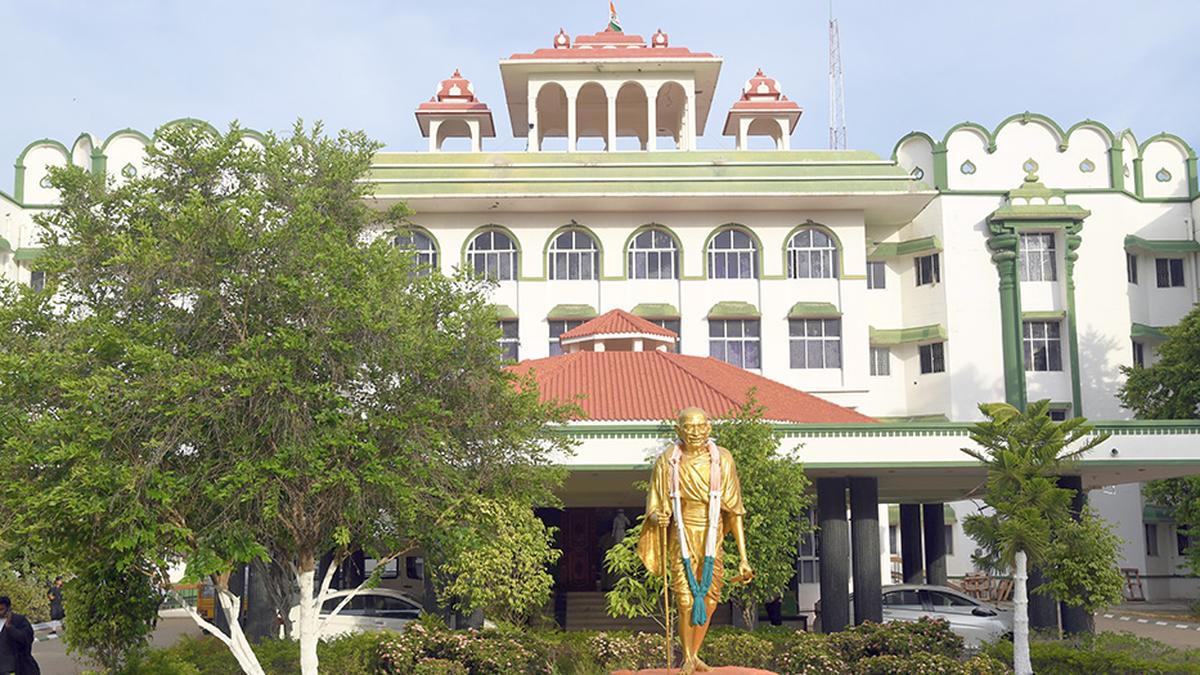
Candidate with special needs entitled to ‘reasonable accommodation’ at exam centre: HC
The Hindu
Madurai Bench of the Madras High Court has held that any candidate not necessarily suffering from a disability defined under The Right of Persons with Disabilities (RPwD) Act, 2016, but having special needs by virtue of his/her biological condition is entitled to ‘reasonable accommodation’.
Madurai Bench of the Madras High Court has held that any candidate not necessarily suffering from a disability defined under The Right of Persons with Disabilities (RPwD) Act, 2016, but having special needs by virtue of his/her biological condition is entitled to ‘reasonable accommodation’.
The observation was made by Justice G.R. Swaminathan while allowing a petition filed by a 19-year-old girl, with a health condition, who is all set to take NEET (UG-2024). The petitioner is taking treatment for LETM/NMO/Spectrum Disorder/Neurogenic Bladder on OPD basis and her doctor has certified that she had lack of urine control, as a result of which she has to wear a diaper continuously and change it frequently.
She sought a direction to the National Testing Agency and the National Medical Commission to permit her to sit in the examination hall wearing a diaper and change it when required. Since there was no response to her representation, she filed the present petition.
The court observed that the petitioner had to wear a diaper always and change it frequently. That would entail visit to a restroom. If the facilities required by the petitioner were denied, she would not be able to take the examination. It would lead to discrimination that was forbidden under Article 14 of the Constitution, the court observed.
There was no justification in restricting the principle of reasonable accommodation only to those suffering from disabilities recognised under the RPwD Act. All persons having disability had special needs. Beneficial principles and doctrines had to be expansively construed and applied, the court observed.
“Every examination centre must have suitable toilet facilities... They must keep a minimum number of sanitary products near the toilets so that any girl who has come unprepared may use them. The girl candidates must be allowed the use of restrooms when required. The rest rooms can be thoroughly inspected in advance and regularly so that there is virtually no need for frisking the candidates for the second time. This will save the candidates’ precious examination time. It is the duty of the authorities to spread awareness so that the candidates are not put to any stress at all,” the court observed.
In the dress code, it would have been appropriate if the clause specifically permitted wearing of sanitary pads by the girls. The examination authorities were directed to bear the special needs of girl children in mind and provide for reasonable accommodation, the court observed.

The girl, who was admitted to Aster CMI Hospital with alarming breathlessness and significant pallor, was diagnosed with Wegener’s Granulomatosis (now known as Granulomatosis with Polyangiitis or GPA), a rare autoimmune condition that causes spontaneous bleeding in the lungs, leading to acute respiratory failure.

ACB files case against IPS officer N. Sanjay in Andhra Pradesh. The official is accused of manipulating the tender processes for awarding contract for development and maintenance of AGNI-NOC portal, and conducting awareness meetings for SC/STs. It is alleged that the total value of properties stolen, or involved in the case is estimated at ₹1,75,86,600.









